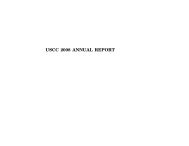Tracking GhostNet: Investigating a Cyber ... - Nart Villeneuve
Tracking GhostNet: Investigating a Cyber ... - Nart Villeneuve
Tracking GhostNet: Investigating a Cyber ... - Nart Villeneuve
You also want an ePaper? Increase the reach of your titles
YUMPU automatically turns print PDFs into web optimized ePapers that Google loves.
JR02-2009 <strong>Tracking</strong> <strong>GhostNet</strong> - INTRODUCTION<br />
7<br />
Introduction<br />
Computer network exploitation represents the leading edge of signals intelligence in the information<br />
age. The proliferation of computer systems throughout governments, businesses, and civic<br />
organizations represents a boon for would-be cyber spies.<br />
Awareness of cyber vulnerabilities, and even basic information security practices, is in its infancy, and<br />
largely absent in most organizations outside of the classified realm. Commercial computer systems, which<br />
represent most of the world’s installed base, are insecure. This lack of security consciousness is reflective<br />
of the infancy of the information age. The Internet was never designed for security and, for the most part,<br />
there has been little incentive for software manufacturers to make security a first priority in the design<br />
and development of products, many of which are destined for consumer and/or small business use.<br />
These challenges are present in advanced industrial societies, but are amplified many times over<br />
in developing countries. Ownership of computers is a relative rarity among many government<br />
departments. Where they exist, they often use grey market or pirated software. Resources are lacking<br />
to employ properly trained computer professionals, and many staff are barely computer literate. In<br />
this context, information security is often a distant priority.<br />
And yet, computers in the hands of individuals or at government offices, ministries, embassies, and<br />
civic and non-governmental organizations contain information that can be valuable. Files and e-mails<br />
with contact information, lists of meetings and attendees, draft position papers, internal PowerPoint<br />
presentations, organizational budgets, and lists of visitors can represent items of strategic value<br />
to rivals and enemies. Organizations, like individuals, can be subject to identity theft, leading to<br />
potentially serious breaches of security.<br />
Rise of the cyber spies<br />
Little is known of the sophistication of state-based cyber espionage capabilities, such as those of the<br />
United States, Israel, and the United Kingdom, all considered leaders in this field. They are assumed<br />
to be considerable as the security doctrines of these countries treat cyberspace as a strategic domain<br />
equivalent to that of land, air, sea, and space. 2<br />
Other powers including China have made cyberspace a key pillar of their national security strategies.<br />
China is actively developing an operational capacity in cyberspace, correctly identifying it as the<br />
domain in which it can achieve strategic parity, if not superiority, over the military establishments<br />
of the United States and its allies. Chinese cyber warfare doctrine is well developed, and significant<br />
resources have been invested by the People’s Liberation Army and security services in developing<br />
defensive and offensive capabilities. 3<br />
2 http://www.dod.mil/pubs/foi/ojcs/07-F-2105doc1.pdf ; http://www.afa.org/media/reports/victorycyberspace.pdf<br />
3 http://findarticles.com/p/articles/mi_m0PBZ/is_6_88/ai_n31140190 ; http://www.infowar-monitor.net/modules.phpop=modload&<br />
name=Archive&file=index&req=viewarticle&artid=2&page=1















